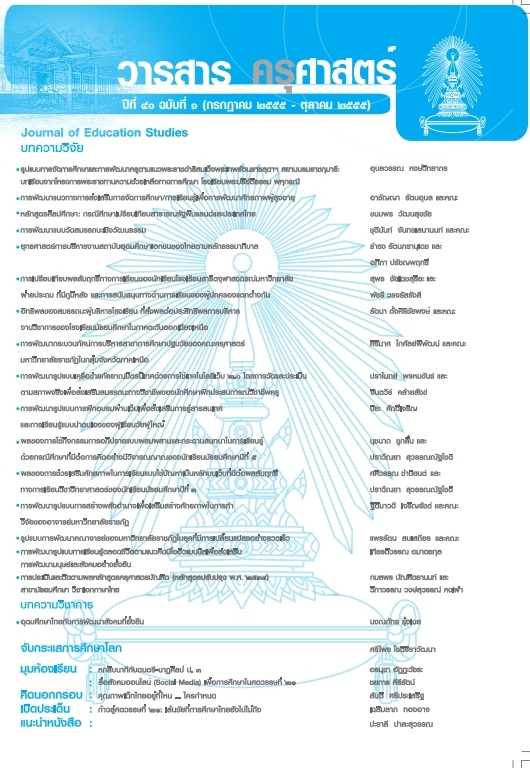อุดมศึกษาไทยกับการพัฒนาสังคมที่ยั่งยืน
Abstract
กระแสโลกาภิวัตน์ ความเจริญก้าวหน้าทางเทคโนโลยี ก่อให้เกิดการบริโภคอย่างฟุ่มเฟือยจนเกิดความไม่สมดุลระหว่างเศรษฐกิจ สังคมและสิ่งแวดล้อมอย่างรุนแรง สถาบันอุดมศึกษาถือว่ามีบทบาทสำคัญมากท่ามกลางกระแสการเปลี่ยนแปลงทางสังคมที่ซับซ้อนสถาบันอุดมศึกษาต้องเป็นสถาบันหลักที่ช่วยให้สังคมอยู่รอดได้โดยต้องปรับกระบวนทัศน์ในการบริหารงานสถาบันและปรับบทบาทในการพัฒนาการจัดการเรียนการสอนเพื่อให้เกิดการพัฒนาสังคมที่ยั่งยืน คำนึงถึงทิศทางในการพัฒนาของประเทศ พัฒนาหลักสูตรให้สอดคล้องกับความต้องการของสังคมและทันต่อการเปลี่ยนแปลงของสังคมโลก เน้นการผลิตและพัฒนาบัณฑิตที่มีความรู้ ทักษะและมีคุณลักษณะที่เหมาะสมในการเป็นผู้นำสังคมได้
Globalization and technological breakthroughs have led to extravagantconsumption resulting in the imbalance between the economy, society and the environment.One could argue that higher education institutes play a crucial role in the midst ofcomplicated social changes. In other words, higher education institutes play integral rolein the survival of society. Therefore, the institute management paradigm andinstructional development roles may need to be adjusted for sustainable socialdevelopment in conformity with the direction of country development. Also, curriculashould respond to the needs and changes of the global society, putting an emphasison developing knowledgeable and skillful graduates with suitable leadership qualif ications.




